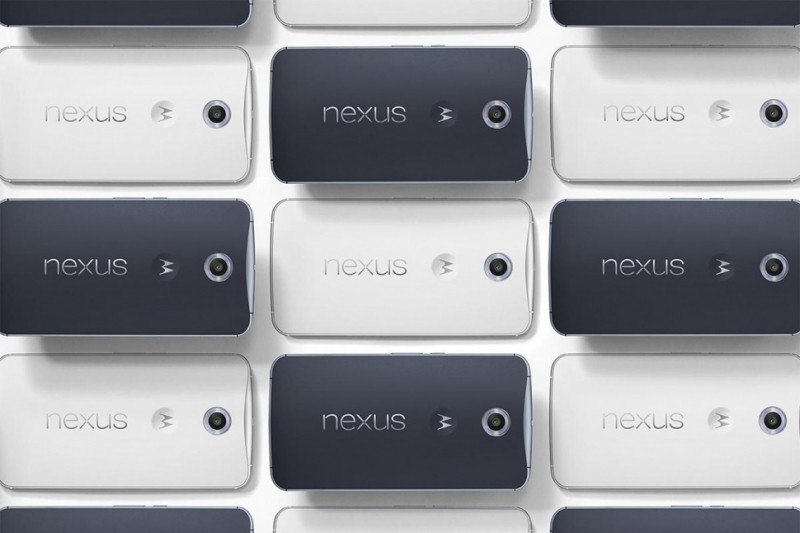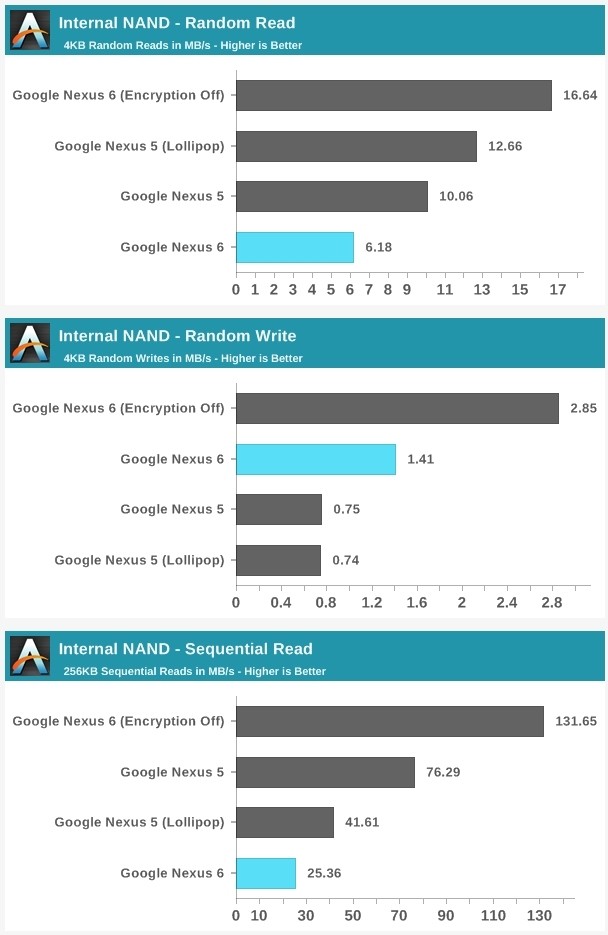
Android 5.0 Lollipop includes a bevy of new features and enhancements such as a remote kill switch and Trusted Places, among others. It’s also the first version of Android that enables Full Disk Encryption (FDE) by default on new devices. It’s a thoughtful gesture on Google’s part considering today’s privacy-conscious culture but as AnandTech recently discovered, it also severely hampers read / write performance.
The publication first noticed some anomalies when benchmark testing the storage system of the new Nexus 6 and decided to dig a bit deeper.

As you can see in the results above using AndEBench, FDE comes with a very significant performance penalty. With it enabled on the Nexus 6, random read performance dropped 62.9 percent while random write speeds were down 50.5 percent. The biggest hit, however, comes in the form of an 80.7 percent drop in sequential read speeds.
It’s worth pointing out that the Nexus 5 in their testing was running Android 4.4 then upgraded to Lollipop. When a user upgrades an older device to Lollipop, FDE isn’t automatically turned on – such is only the case on new devices that ship with Lollipop.
For those curious, FDE has been available since Android 3.0 Honeycomb but again, Lollipop is the first build to enable it by default on new devices.

The results almost seem unfathomable but it does make sense. With FDE enabled, all writes to disk are encrypted before being saved and conversely, all reads are decrypted before being sent to RAM.
What makes things worse is the fact that the key to decrypt is protected by the lockscreen password. That means that people who don’t use a passcode on the lockscreen (there are lots of people who don’t) are taking the performance hit without any gains from FDE.
With any luck, Google will find a workaround to speed up FDE reads and writes though given that it’s been around since Honeycomb (2011), it seems somewhat unlikely. At the very least, maybe they will reconsider whether it should be enabled by default.
If your Nexus 6 feels a bit laggy at times, this could be why. It may be worth turning FDE off for a bit to see if it helps speed things up. For now, however, users must decide if the added security is worth the performance trade-off.